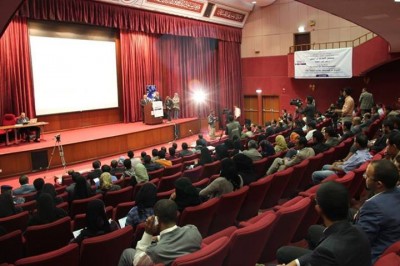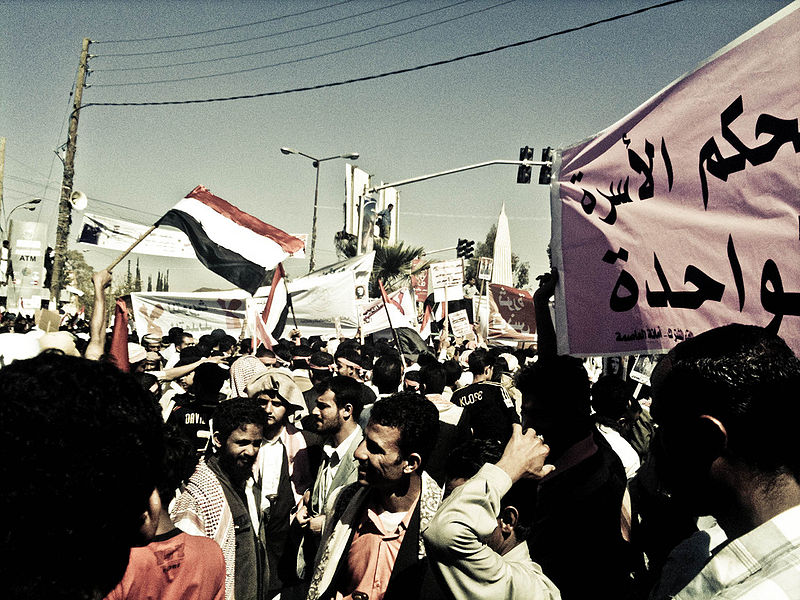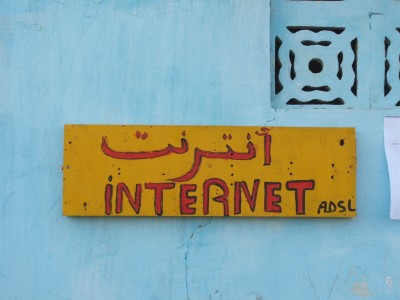Walid Al-Saqaf is the Chair of ISOC-Yemen.
The economy is suffering, illiteracy levels are among the highest in the world, and most high school and university graduates are struggling to find work. Even worse, the security situation is dire: assassinations, kidnappings, and other violent acts have become routine. This is the state of Yemen today. But one segment of society that is trying to reverse the country’s fortunes is Yemen’s youth. Young Yemenis today could prove the greatest asset in getting the country back on its feet. Technology has a big role to play here.
Young people who are trying to find new ways to find work, engage, do research and get a break from daily hardships have found that the Internet has given them some relief and hope.
The recent launch of Yemen’s chapter of the Internet Society gives me reason to be hopeful. More than 200 people attended the launch event that took place in a remote part of Sana’a City. This leaves me optimistic about the strong desire of Yemenis, particularly youth, to have a stronger, more resilient, more accessible Internet.
Why now?

ISOC-Yemen launch, November 2013. Photo used with permission.
With so many problems facing Yemen, one of the questions posed by some audience members at the event was ‘Why now?’ hinting at the many other difficulties that Yemen faces -– severe water shortages and power outages have become a daily norm, and many don’t dare leaving home after midnight for fear of armed gangs. In the face of such direct threats to health and safety, some have asked: Why should one invest time, energy and money in the Internet?
The Internet could bring change, foster ideas and ultimately, play an integral role in lifting people from poverty. A small minority of Yemenis have pioneered this space, developing their own businesses on social media or using the Internet to find work. Success stories of Internet-based development and entrepreneurship could inspire more action. Events such as TEDxSanaa, TEDxAden and Sanaa Startup Weekend have highlighted these achievements.
These examples were fascinating because the Internet was able to help change lives at a personal level despite a poor and relatively expensive connection. One can only imagine how a more open, easily accessible Internet could impact Yemeni society.
ISOC-Yemen is a step towards making Yemen a country more connected to the world. With a population of 25 million, the majority of whom are under 40, Yemen could become one of the fastest growing countries when it comes to Internet penetration and use. It shows tremendous promise that can help shape the future of the country both at an individual and national level.
Affordability, awareness and transparency
There is much work to be done. At 15%, Yemen's lowest Internet penetration rate is currently the lowest in the Arab World. The country also lacks 3G connectivity – although this is due in part to the government’s monopoly over telecommunications services, infrastructure has also been decimated by acts of violence – in 2012 alone, fiber cables were cut 180 times in attacks against the state and intertribal conflict.
We must start taking bold and strategic steps to seize the moment and use the Internet to its fullest potential. As ISOC-Yemen, we plan to do this with three primary initiatives.
We plan to engage with Internet service providers and public policy makers in an effort to end the government telecom monopoly once and for all. The current system, in which the country has one ISP operated by the government, has proven unsustainable. Yemen is the only country in the region that does not have 3G connectivity and lacks many services that are taken for granted in the region. It is time to open the market with clearly-defined conditions that will protect consumers and establish an environment of healthy competition. Without competition, government-run services could lag behind, failing to satisfy the needs of the public and the market.
We also will focus on awareness. Yemenis need to wake up to the global information revolution. It is unacceptable for students and teachers not to have email accounts and not understand what the Internet is and how it is used. And we must take advantage of the resources that the Internet can offer, not only for economic development, but also for education.
We also plan to promote transparency and e-government initiatives. Recent history has proven that a lack of transparency has led to corruption that has resulted in greater levels of poverty in Yemen. In many countries new and effective e-government services have brought the elimination middle-men and fixers. Having the government publish valuable and relevant information for public scrutiny will allow the public to hold officials accountable for their actions and to ensure that tax-payer money is spent appropriately.
ISOC-Yemen will undertake many other initiatives—these are merely a starting point. As a civil society organization, ISOC-Yemen can help shape the future of the Internet not only in Yemen, but also in the region. As ISOC is soon establishing a Middle East bureau, Yemen could be a prominent beneficiary and partner of the bureau, due to its pressing need for support, its great market potential, and its strategic location for cable connectivity to Africa and the Arabian Peninsula.
The bright side
Despite the troubles Yemen faces, I can see a bright side that should not be overlooked. It could be summarized in the youth of Yemen, this untapped resource that can fundamentally change the country’s status from being the least developed in the Middle East, to the most competent, skilled and fastest-growing country in the region. It can do so because it possesses something that other oil-rich neighboring countries do not: a robust youth population that is determined to rise up and defeat the odds with a spirit of hard work and dedication.
I felt from my last visit to Yemen eagerness in the eyes of many young Yemenis who wish to surprise the world, turn the fortunes of the past around, and prove that we could once again become a good world citizen. The Internet could help make that a reality.
ISOC is a non-profit non-governmental organization based in the US with the aim of supporting an open and robust Internet. It serves as the umbrella of Internet Architecture Board, the Internet Engineering Task Force, the Internet Engineering Steering Group, and the Internet Research Task Force. Learn more here.





3 comments